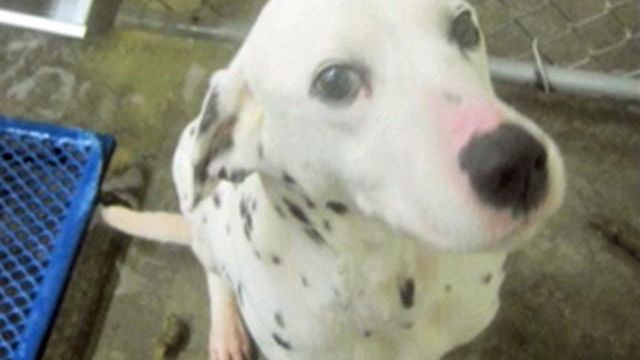PETA sees cat, dog abuse at N.C. lab
An animal-welfare group believes that workers at a North Carolina research lab abused dogs, cats and rabbits, and the activists released what they said was undercover video of caretakers handling the animals violently.
Posted — UpdatedA local prosecutor and the company’s president said Wednesday that they are now taking a close look.
Professional Laboratory and Research Services Inc., which has a facility in Corapeake near the Virginia border, is hired by pharmaceutical firms to test animal-care products such as flea preventatives. People for the Ethical Treatment of Animals said that one of its investigators was hired as an animal caretaker and worked from December 2009 until September.
Helen Sonenshine, the company president who is not involved in day-to-day operations, confirmed that the video was taken at the company’s facility and included footage of company employees. Officials were reviewing the footage, and Sonenshine said the company will fire anyone if they have done anything contrary to protocols on how to treat animals.
“I am disgusted. I am appalled,” she said after viewing the clips. “This is not what we’re about. We’re about the health of the animals.”
U.S. Department of Agriculture inspections show no sign of recent violations.
PETA referred videos, photos and a narrative to local prosecutors. Gates County District Attorney Frank Parrish said his office is reviewing the report and will follow up with further investigation to determine whether or not criminal charges should be filed.
“We will certainly be very thorough about looking at these issues,” he said.
WRAL News was looking into what companies' products are tested at the PLRS lab.
In one scene of the video released Wednesday by PETA, a beagle cowers in the corner of its cage as a person approaches, derisively describing the dog’s condition before snatching it by the back of the neck, “They act like they’ve been abused.”
The PETA worker and video depict squalid conditions of animals living in their own excrement. PETA contends that workers sprayed the animals with harsh chemicals, lifted rabbits by their ears and puppies by their throats, and violently threw cats into their cages.
Another clip shows an employee letting a cat grasp a fence with its claw before yanking it in an apparent attempt to rip off its nails, according to PETA’s account of the video.
"Do it so I can pull your nails out when you do," a female worker with her face blurred out says in the video.
In another portion, a caretaker drops a dog back to the ground before pushing it into the cage with a foot. Another scene shows a dog squirming through a tooth removal as workers acknowledge that the sedation drug is a couple of years past its expiration and might not be working very well.
"It expired in '07. Maybe that's why it doesn't work well," an off-screen male worker says in the video.
In another clip of the video, which was edited by PETA, a male worker asks a female worker if animals had been treated for sores that he reported. She responds that they weren't.
"Because, listen, if you've got 10 dogs here that have the same problem, it's not a problem. It's a living condition here," the female employee says in PETA's video. "We need to write up things that are abnormal. That is normal for life here."
PETA believes the company violated several parts of The Animal Welfare act, including improper veterinary care, improper handling of animals and improper cleaning procedures. It has filed or plans to file complaints with both regulatory agencies and law enforcement.
“Violence seems to be the guiding principle at this laboratory,” said Kathy Guillermo, vice president of laboratory investigations at PETA. “The only time the animals get some attention is when something painful or invasive is done to them.”
The animal rights group also complained about the testing procedures used at the site. Workers at the facility grew ticks on the rabbits even though PETA says there are non-animal methods that have been in use for years.
“There’s simply no excuse,” Guillermo said.
• Credits
Copyright 2024 by WRAL.com and the Associated Press. All rights reserved. This material may not be published, broadcast, rewritten or redistributed.





